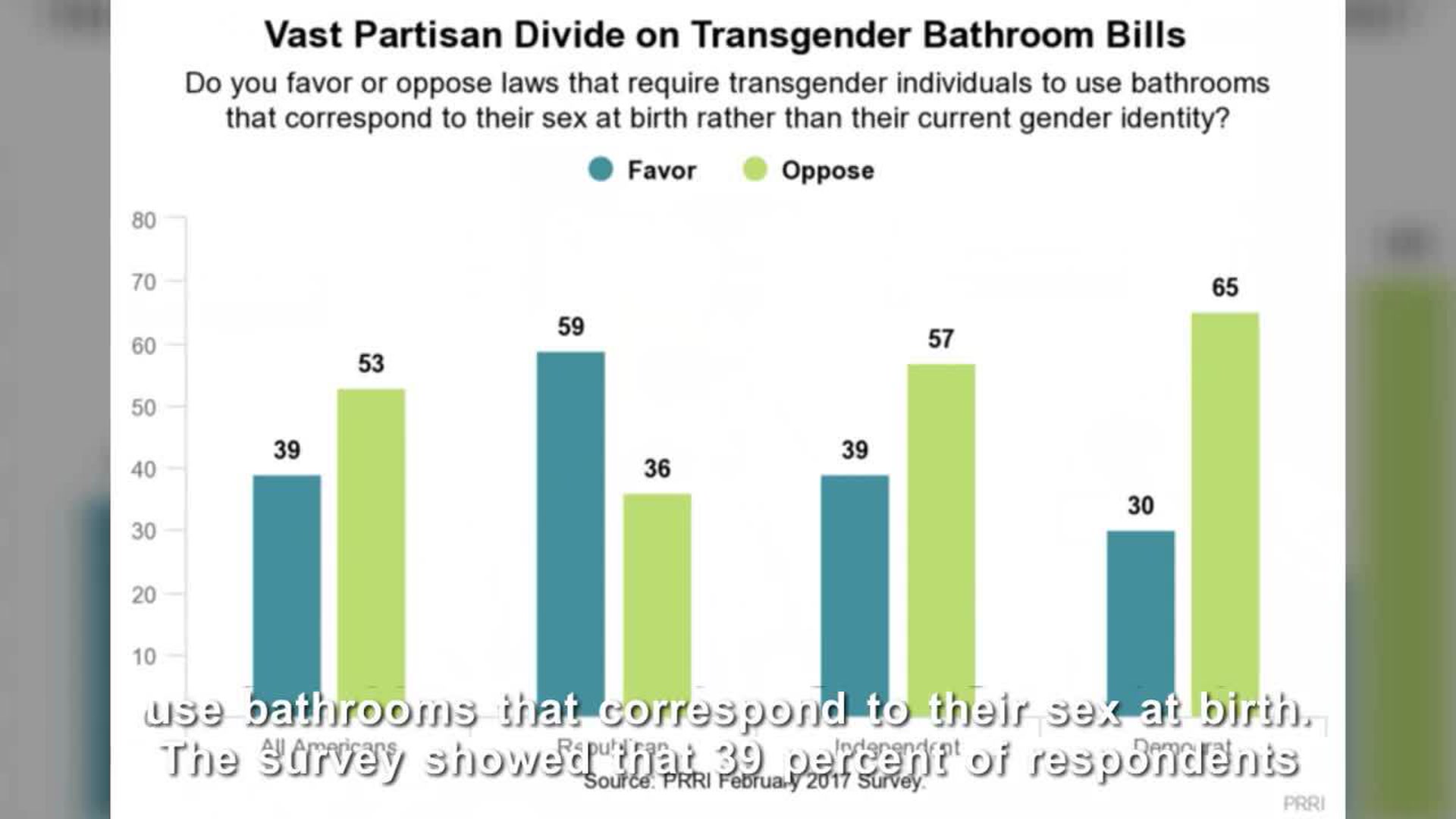Contrary to the assertions of some right-wingers, a majority of Americans don't think business owners should be able to turn away gay and lesbian customers and are just fine with
transgender people using the public restroom of their choice.
Those are among the findings in a survey released today by the Public Religion Research Institute, a nonpartisan, independent research organization based in Washington, D.C. It noted broad support for LGBT rights in a variety of arenas, among Americans of many different religious faiths and political affiliations, although there is still a partisan divide on some issues than others.
Sixty-four percent of respondents said they don't believe small-business owners in their state should be able to refuse service to gay and lesbian customers on religious grounds, according to the survey (which specifically said "gay and lesbian," not LGBT, in the question). Thirty-two percent thought businesses should have that right.
White evangelical Protestants represented the only major religious group in which a majority supported religious refusal rights, with 56 percent. Less than a third of white mainline Protestants, Catholics, black Protestants, the religiously unaffiliated, and members of non-Christian faiths voiced support. Eighty-one percent of Democrats and 66 percent of independents opposed religious refusals, while a slight majority of Republicans -- 52 percent -- expressed support.
Still, the Trump administration seems to be following the lead of the religious right, as it's reportedly considering an executive order that would let businesses, nonprofit organizations, and even government employees refuse to serve customers who offend their religious beliefs about marriage, sexuality, and gender -- specifically, beliefs that marriage is an opposite-sex union only, that sexual activity should occur only within such marriage, and that gender is fixed at birth. There is also a bill to this effect, the First Amendment Defense Act, pending in Congress.
States that have tried enacting such "license to discriminate" laws have aroused much opposition. Indiana, where Mike Pence, now vice president, signed one of these measures into law in 2015, but he and legislators had to amend it after backlash threatened business and tourism in the state. Arkansas adopted and then had to amend a similar law that year. And one passed last year in Mississippi has been blocked by a federal court.
It also turns out that a majority of Americans don't support measures that restrict transgender people's restroom access. A majority of respondents, 53 percent, "oppose laws that would require transgender people to use bathrooms that correspond to their sex at birth rather than their current gender identity," notes PRRI's summary of the survey findings.
When broken down along political lines, opposition is greatest among Democrats, 65 percent, and independents, 57 percent. But 59 percent of Republicans favor such laws. Among religious groups, opposition was strongest on the part of the unaffiliated (64 percent) and Catholics (56 percent), while several other faith groups were almost evenly divided.
But the federal government and some states apparently aren't worried about the opposition to such restrictions. Just last month, the U.S. Departments of Education and Justice rescinded Obama-era guidelines recommending that schools let trans students use facilities matching their gender identity, in addition to recognizing their identity with the proper names, pronouns, and so forth. North Carolina's infamous House Bill 2, enacted last year, among other things bars trans people from using facilities corresponding with their gender identity, when in public schools and other government buildings; it has drawn much backlash but remains on the books, although being challenged in court. Texas lawmakers are considering anti-trans "bathroom bills" this year.
The PRRI survey also asked respondents about several other issues, including marriage equality; racial, religious, and anti-LGBT discrimination; bullying of LGBT young people; and contraceptive coverage in employee health insurance plans. Read the full summary here.





































































Charlie Kirk DID say stoning gay people was the 'perfect law' — and these other heinous quotes